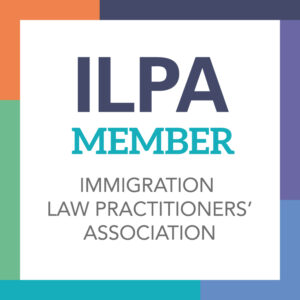We provide a brief explicit description below of the skilled worker visa – what it entails.
If you are planning to come to the UK to work the likelihood is that you will need a skilled worker visa. The visa is commonly referred to as a high skilled worker visa or highly skilled migrant visa and replaces the Tier 2 (General) visa.
An employee won’t need a skilled worker visa if they’re:
- A British citizen by birth or through making a British Citizenship application
- A settled worker – for example, with Indefinite Leave to Remain in the UK
- An EU national who has applied for pre-settled status or settled status under the EU Settlement Scheme
The immigration rules on high skilled workers are complicated. If you have questions about whether you require a skilled worker visa or a job candidate needs a work visa, it is best to take expert advice so you or your company are not caught out.
For example, if a skilled worker changes their employer, they’ll need to apply for a new visa rather than simply transfer their skilled worker visa to their new employment. Applying for a new visa doesn’t delay the recruitment process but it’s essential for both employee and the employer that they follow the correct process.
If immigration rules are breached, an employee could place their immigration status at risk and the employer could face their Sponsorship Licence being audited, suspended or even revoked.
Do EU citizens need skilled worker visas?
Some EU citizens need skilled worker visas because, after the end of free movement for EEA nationals, the UK immigration rules don’t distinguish between EU and non-EEA nationals.
EU citizens coming to the UK to live and work after the 31 December 2020 are treated in the same way for immigration purposes as non-EEA nationals. New rules and the requirement for EU nationals to apply for a skilled worker visa are potentially confusing to HR executives, business owners and employers as well as EU nationals looking to relocate to the UK.
Much of the confusion over whether EU citizens need skilled worker visas is because EU citizens (and their families) living in the UK before the 1 January 2021 don’t need a skilled worker visa and won’t be subject to UK immigration control provided that they have pre-settled status or settled status under the EU Settlement Scheme before the cut-off date for applications.
How does a UK employer sponsor a skilled worker?
UK employers need a Home Office Sponsorship Licence to employ skilled migrant workers. Without a Sponsorship Licence, a UK employer would be in breach of immigration rules and right to work legislation if they employed someone subject to UK immigration control without the necessary skilled worker visa.
The first step in the sponsor process is to apply for a Sponsorship Licence. Immigration solicitors say it’s best to apply for a Sponsorship Licence in advance of needing to recruit workers from overseas so securing the Sponsorship Licence doesn’t hold up recruitment plans.
Applying for a Sponsorship Licence
If you are a UK business owner, especially if you’re an entrepreneur start-up or SME and plan to recruit foreign workers you need to apply for a Sponsorship Licence. Applying for a Sponsorship Licence can be daunting when HR executives are already hard pressed dealing with daily HR demands. Our specialist immigration team can assist, please contact if you require assistance with your Sponsorship Licence.
What is the Certificate of Sponsorship requirement?
Skilled migrant workers must have a job offer from a UK employer with a Sponsorship Licence before they can apply for a skilled worker visa.
A UK company recruiting a skilled overseas worker needs to allocate the successful overseas job applicant with a defined or undefined Certificate of Sponsorship or reference number. That’s then used by the skilled worker when applying to the Home Office for their skilled worker visa.
The need for the skilled worker job to be a genuine vacancy
When UK employers with Sponsorship Licences are recruiting skilled migrant workers on skilled worker visas, the job on offer must be what is referred to in the immigration rules as a ‘genuine vacancy’. This means the vacancy must be a real job at the relevant skill level and salary for a skilled worker visa.
Most employers won’t encounter difficulties with the genuine vacancy test but if you’re unsure if a specific role or job applicant meets the genuine vacancy and eligibility criteria for a skilled worker visa it’s best to contact a business immigration solicitor.
The skilled worker visa and the immigration skills charge
If a UK business owner with a Sponsorship Licence employs a skilled migrant worker on a skilled worker visa the Home Office imposes an immigration skills charge for each visa applicant. The charge is payable when the employer assigns the Certificate of Sponsorship to the proposed employee but is refundable if the employee fails to secure their visa.
The amount an employer pays for the immigration skills charge depends on the size and nature of the company. There are also some roles where exemptions to the immigration skills charge apply. Refunds of the immigration skills charge are payable if the skilled worker leaves their employment prior to the end of their skilled worker visa.
What is the skill level needed for a skilled worker visa?
There is a lot of confusion about the skill level required for a skilled worker visa. To secure a skilled worker visa, a migrant has to be employed in a job that is on the list of eligible occupations. They must also be paid a minimum salary, the level of which will depend on the type of work they do.
What is the English language requirement for the skilled worker visa?
Most employers are anxious about whether a preferred job candidate will meet the English language requirement for a skilled worker visa.
Our business immigration solicitors can often reassure business owners and prospective employees that the worker may automatically meet the English language requirement by virtue of their country of nationality or qualifications.
Alternatively, the employee can sit an approved English language test as part of the skilled worker visa application process.
What is the salary threshold for a skilled worker visa?
The salary threshold for a UK skilled work visa will depend on the occupation of the person applying. The UK government gives general guidance that your salary must be whichever is highest out of £25,600/year or £10.10/hour. However, if the ‘going rate’ for the type of role you will be working in is higher than this, then you will need to meet that threshold instead.
Knowing which salary threshold applies and what the ‘going rate’ is for a role can be tricky, so our business immigration solicitors will be happy to advise you on the salary threshold for a particular occupation.
Does a job have to be on the shortage occupation list to secure a work visa?
A job doesn’t have to be on the UK government shortage occupation list for a prospective employee to get a skilled worker visa, but the job’s inclusion on the list helps with tradeable points and the minimum salary threshold.
If you are unsure about whether your job role meets the shortage occupation list contact us for for more information.
Who is a new entrant to the labour market for a skilled worker visa?
An employee is a ‘new entrant’ if they are under 26 or studying or a recent graduate or in professional training. If a job candidate qualifies as a new entrant the minimum salary threshold is reduced.
The Financial Requirement
The financial requirement for a skilled worker visa is the amount of money an employee needs to prove they have before their arrival in the UK as evidence that they can support themselves.
The figure set by the Home Office is currently £1,270 to be held for a period of 28 days before application is made or the employer can certify this if they wish when assigning the certificate of sponsorship to the employee.
What is the criminal record certificate requirement?
An employee needs to provide a criminal record certificate when submitting their visa application if they’ve been offered sponsored employment in specific sectors, such as healthcare or education
How long does a skilled worker visa last for?
A skilled worker visa lasts for up to five years. An employee should think about extending their visa or settlement options, such as Indefinite Leave to Remain before their work visa expires.
How long can you stay in the UK on a skilled worker visa?
There are no limits to the number of times an employee can apply to extend their skilled worker visa provided they meet the visa eligibility criteria. Applying for Indefinite Leave to Remain once an employee has met the residence requirement means they no longer require a visa and are free of immigration controls.
What are the immigration conditions on a skilled worker visa?
Immigration conditions on a skilled worker visa include maintaining employment with a sponsoring employer. If sponsored employment is lost, the visa will normally be curtailed to give the migrant worker a short period of time to secure employment with another sponsoring employer or apply for a different type of visa.
If you are worried about immigration conditions it is best to take early immigration advice as being in breach can affect your immigration status and prospects of successfully extending your visa or settling in the UK.
Applying for a skilled worker visa from outside the UK
If you’re applying for a skilled migrant visa from outside the UK you will need to apply online with supporting information supplied by your employer, such as the Certificate of Sponsorship reference code, job title and salary.
For help with your skilled worker visa application contact us on 0203 761 3993 or use our online contact form.





